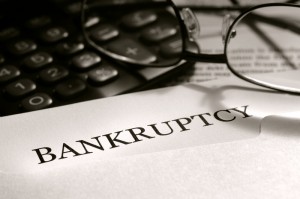 In Texas, we have two sets of bankruptcy exemptions available to us. Debtors can file bankruptcy using the Texas exemptions or the Federal Exemptions. However, they must pick one set of exemptions. They cannot use a combination of both. Each set of exemptions is good at protecting different types of property. Texas has an unlimited homestead exemption. This means that if a debtor has a house with a significant amount of equity then he can protect its entire value from the creditors and the bankruptcy trustee. It doesn’t matter if the property is worth $100 million dollars, it is still protected. However, there is a limitation on how many acres a debtor can protect. However Texas exemptions do not protect money in bank accounts, stocks, bonds, mutual funds, and other types of assets similar to cash.
In Texas, we have two sets of bankruptcy exemptions available to us. Debtors can file bankruptcy using the Texas exemptions or the Federal Exemptions. However, they must pick one set of exemptions. They cannot use a combination of both. Each set of exemptions is good at protecting different types of property. Texas has an unlimited homestead exemption. This means that if a debtor has a house with a significant amount of equity then he can protect its entire value from the creditors and the bankruptcy trustee. It doesn’t matter if the property is worth $100 million dollars, it is still protected. However, there is a limitation on how many acres a debtor can protect. However Texas exemptions do not protect money in bank accounts, stocks, bonds, mutual funds, and other types of assets similar to cash.
Federal exemptions are different. They are limited in how much protection is provided to a debtor’s homestead but they are very good at protecting cash and other types of financial accounts. The Federal exemptions include a wild card exemption. The wild card can be used to protect any type of asset. It can also be divided up amongst many different assets and stacked on top of other types of exemptions in order to protect a portion that would otherwise be nonexempt. The amount of the wild card exemption depends on two factors. First, bankruptcy cases that have one filer receive less wild card exemption than bankruptcy cases in which a debtor and their spouse is filing. Second, debtors who have equity in a home can protect less of other types of assets using their wild card exemption than debtors who do not have a homestead. In fact, the wild card exemption is on a sliding scale that diminishes based upon the value of the debtor’s homestead exemption. For debtors who do not have a homestead, the wild card exemption provides the ability to protect a large amount of property.
For more information about bankruptcy exemptions in Texas contact a Richardson TX bankruptcy lawyer.